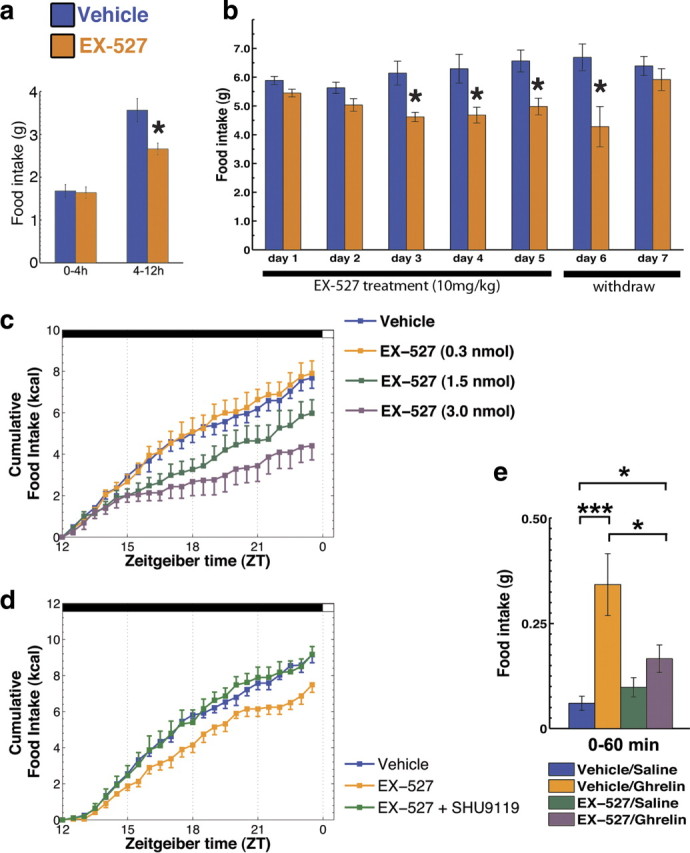Figure 3.

Inhibition of Sirt1 decreases food intake. a, Peripheral injection of a specific Sirt1 inhibitor, EX-527 (10 mg/kg), decreased the overnight food intake with no effect in the first 4 h (mean ± SEM, n = 5). b, Daily injection of EX-527 (10 mg/kg) just before the dark cycle produces a robust and consistent decrease in food intake (mean ± SEM, n = 4). c, Injection of EX-527 into the cerebral ventricles also inhibited food intake in a dose-dependent manner during the dark cycle (mean ± SEM, n = 4–7). d, SHU9119 (140 pmol, i.c.v.), a potent melanocortin receptor antagonist, counteracted the inhibitory effect of EX-527 on food intake (mean ± SEM, n = 4–6), highlighting the importance of downstream melanocortin signaling as an effector of Sirt1 inhibition on food intake. e, Brain Sirt1 inhibition by EX-527 (i.c.v.) blunted the orexigenic effect of the gut hormone ghrelin, which depends on redox adaptations in the NPY/Agrp neurons (Andrews et al., 2008) (mean ± SEM, n = 7–13 mice). *p < 0.05, **p < 0.01, ***p < 0.001. Scale bars, 50 μm.
